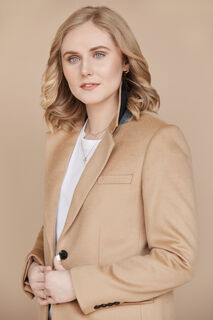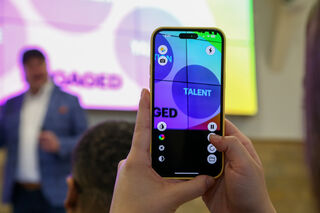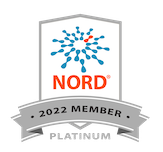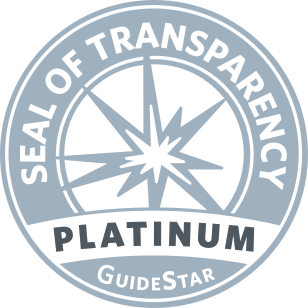How an Assistive App Developer is Revolutionizing Accessibility
Beacon Stories
Meet Rebecca Rosenberg, the founder of ReBokeh Vision Technologies, whose journey from engineer to entrepreneur may have been guided by fate. Diagnosed with oculocutaneous albinism (OCA1) at a young age, Rebecca faced numerous obstacles due to the lack of assistive technology tailored to her unique needs. This inspired her to create an app that would revolutionize the world of assistive technology for those with moderate low vision.
By Simone Robinson

Rebecca Rosenberg posing in front of a beige colored backdrop
Meet Rebecca Rosenberg, the founder of assistive technology startup ReBokeh Vision Technologies. From her diagnosis of oculocutaneous albinism (OCA1) at a young age, the engineering student turned CEO’s journey has been quite unique. Now, at the age of 25, she stands at the forefront of revolutionizing assistive technology for those with moderately low vision.
Several months after birth, Rebecca accompanied her mother to a routine dental appointment. While in the doctor’s office, the receptionist noticed some irregularities in her nystagmus due to her own family’s history of blindness. After a few weeks, she reached out to Rebecca’s parents, which led to a series of doctor visits and initial misdiagnosis. Rebecca was ultimately diagnosed with OCA1 and underwent strabismus surgery at the age of three.
“It basically resulted in decreased visual acuity,” says Rebecca. “The way I would describe it is if a regular sighted person sees in high definition, I see in standard definition. I’m missing pixels and a lot of them. I spent most of my life growing up not really sure if I was going to be able to get my driver’s license.”
After discovering her diagnosis as an adult, Rebecca began to connect with organizations such as the National Organization for Albinism and Hypopigmentation (NOAH), where she discovered a supportive community of individuals with similar experiences.
“I was in my 20s before I found out I had albinism because I never asked any questions,” she says. “It was only when I was starting ReBokeh that I asked, and my mom shared the diagnosis that I received from the doctor. And that was when I realized that there was a whole albinism community of people who were like me. I realized that there were organizations like NOAH that support people specifically with albinism, and that led me to my first NOAH conference that I went to last summer. I got to meet all of these fantastic people with the same lived experience as me in ways that I didn’t realize were a result of my albinism.”
.jpg)
A childhood photo of Rebecca writing in a book
Rebecca went on to pursue an undergraduate degree in biomedical engineering at Bucknell University in Pennsylvania. After graduating, she went to Johns Hopkins University to pursue a master's degree at the Center of Bioengineering Innovation and Design.
During her time at Johns Hopkins University, she actively participated in projects focused on global health. For one year, she led a project on the development of a tool designed to automatically classify mosquitoes based on photographs before transitioning to entrepreneurship full-time.
“There are a lot of qualities that you need to have to be an entrepreneur and to create something where nothing existed before,” says Rebecca. “I think that the qualities that are embedded in a person who has lived with any type of disability include self-reliance, perseverance, risk-taking, and the understanding of how to deal with the loneliness of knowing that other people don’t know what you are dealing with. All those things make a good entrepreneur and people with disabilities are learning those things as children.”
Rebecca's initial inspiration to start ReBokeh stemmed from her personal experience with albinism and the lack of assistive technology available for individuals between the vision spectrum.
“The initial motivation was that there was nothing available for me, and I wanted to make something that would work for me,” says Rebecca. “I managed to get a grant from my undergraduate university to take on that problem for a summer. By the end of the summer, I had less than a back of a napkin idea, but I felt that a smartphone app would make sense and be the right way to move forward.”

A close up photo of a ReBokeh user using the app during a presentation
Once news began to spread after a few local interviews, Rebecca recognized the importance of her idea to the visually impaired community. She dedicated herself to the project throughout her three years as a student, collaborating with fellow students and experts, leading to the establishment of ReBokeh Vision Technologies. Her expanding team has become a vital part of the development process, and user feedback has served as an integral part of shaping the app into what it is today.
The ReBokeh smartphone app is a modern assistive technology for individuals with low vision. Unlike conventional assistive tools such as tactile and audio descriptions, the app grants users the unique ability to utilize their camera feeds to modify the appearance of the world around them.
“For a year, ReBokeh was in beta with about 100 users and a full advisory board of people who were providing us feedback on everything from bugs to different capabilities people wanted to see it have in the future,” Rebecca recalls.
Since then, the company has expanded to include users in 96 countries and has recently launched ReBokeh Plus, their first premium subscription tier. ReBokeh Plus allows users access to tailored features, including expanded inversion options, the ability to upload and adjust images, and customizable presets to further adjust their experience to fit their unique needs.
.jpg)
A closeup photo demonstrating the camera feed features of the ReBokeh app
While the company has achieved significant success, what truly fulfills Rebecca is the relationships she has cultivated with fellow entrepreneurs and the profound impact the app has had on the lives of visually impaired individuals who have had positive experiences using the app.
“People and relationships are so important as you go through this journey, especially because you can begin to help other people too,” says Rebecca. “As I have had more experience as an entrepreneur, I’ve been able to help other entrepreneurs, and it’s a really fun and rewarding cycle once you get into the startup world.”
With significant plans for her company and high hopes for the future of assistive technology, Rebecca plans to expand further and leverage emerging technologies such as machine learning and artificial intelligence.
“I think we are really going to move to holding assistive technology companies to a higher standard in terms of the products that they are producing, especially at the price points that a lot of them tend to come in at,” says Rebecca. “And I also think that as additional technology becomes available and shakes up the tech landscape as a whole, I’m hoping that we start to see that embedded into assistive technologies.”




